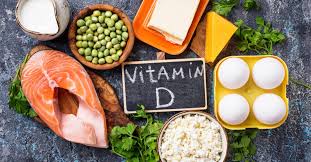
Vitamin D is very important for our body. It helps us keep our bones strong, boosts our immune system, and supports overall health. Many adults suffer from vitamin D deficiency without even knowing it. In this article, we will talk about the common symptoms of vitamin D deficiency in adults using simple and easy words.
H2: Why Is Vitamin D Important?
Vitamin D helps your body absorb calcium, which keeps bones and teeth strong. It also supports your immune system, muscles, and brain. Our body makes vitamin D from sunlight. You can also get it from some foods and supplements.
H2: Causes of Vitamin D Deficiency
H3: Lack of Sunlight
One of the most common causes is not getting enough sunlight. People who stay indoors or live in places with long winters may have low vitamin D.
H3: Poor Diet
A diet that does not include enough vitamin D-rich foods like fish, eggs, or fortified milk can also lead to deficiency.
H3: Health Conditions
Some health problems like kidney or liver disease, obesity, and digestive disorders can make it hard for the body to absorb or use vitamin D properly.
H2: Common Symptoms of Vitamin D Deficiency in Adults
H3: 1. Tiredness and Low Energy
If you feel tired all the time, even after sleeping well, it might be because of low vitamin D. This vitamin helps produce energy in the body.
H3: 2. Muscle Weakness or Pain
Vitamin D is needed for strong muscles. A deficiency may cause muscle cramps, pain, or weakness, especially in the arms and legs.
H3: 3. Bone Pain
People with low vitamin D often feel bone pain in their lower back, legs, or ribs. This happens because the bones become weaker.
H3: 4. Frequent Illness
Vitamin D helps fight infections. If you get sick often with colds or the flu, it could be a sign that your vitamin D levels are low.
H3: 5. Depression or Mood Changes
Some people with low vitamin D feel sad, tired, or anxious. This vitamin helps with brain function and mood control.
H3: 6. Hair Loss
While hair loss can happen due to many reasons, severe hair loss may also be linked to vitamin D deficiency.
H3: 7. Slow Wound Healing
If your cuts or wounds take a long time to heal, low vitamin D could be the reason. This vitamin helps your skin repair itself.
H3: 8. Joint Pain
People with vitamin D deficiency may also experience pain in their joints, which can make moving difficult.
H3: 9. Weak Bones (Osteoporosis)
Over time, not having enough vitamin D can lead to osteoporosis. This makes your bones thin and break easily.
H3: 10. Trouble Sleeping
Vitamin D also affects your sleep cycle. Deficiency may cause poor sleep or make it hard to stay asleep at night.
H2: Who Is at Risk?
H3: Older Adults
As people age, their skin makes less vitamin D from sunlight.
H3: People with Dark Skin
Dark skin has more melanin, which reduces the skin’s ability to make vitamin D.
H3: People with Digestive Issues
People with celiac disease, Crohn’s disease, or IBS may not absorb enough vitamin D from food.
H3: Overweight Individuals
Vitamin D gets stored in fat, making it harder for the body to use it.
H2: How to Check Vitamin D Levels
If you feel any of the symptoms listed, it is a good idea to get a blood test. This test measures the level of vitamin D in your body. A doctor can help you understand the results and guide you on what to do.
H2: Natural Ways to Improve Vitamin D Levels
H3: Spend Time in Sunlight
Try to get 10-30 minutes of sunlight on your skin a few times a week. Morning sunlight is best and safer for your skin.
H3: Eat Vitamin D-Rich Foods
Include foods like:
- Fatty fish (salmon, tuna)
- Egg yolks
- Fortified milk or orange juice
- Cheese and butter
H3: Take Supplements
If you are not getting enough from food and sunlight, your doctor may suggest vitamin D supplements.
H2: When to See a Doctor
If you have any of the symptoms mentioned and they don’t go away, it’s time to see a doctor. A simple blood test can check your vitamin D level. If it is low, the doctor may give you supplements or dietary advice.
H2: Tips to Prevent Vitamin D Deficiency
- Go outside regularly
- Eat a balanced diet
- Stay active and healthy
- Get regular check-ups
- Follow your doctor’s advice
FAQs
Q1: What are the first signs of vitamin D deficiency in adults?
Feeling tired, weak muscles, and frequent illnesses are often the first signs of vitamin D deficiency in adults.
Q2: Can I get enough vitamin D from the sun?
Yes, spending 10-30 minutes in sunlight a few times a week can help your body make enough vitamin D naturally.
Q3: What foods are high in vitamin D?
Fish like salmon, egg yolks, and fortified milk or cereals are good sources of vitamin D.
Q4: Who should take vitamin D supplements?
People who don’t get enough sunlight or have poor diets may need vitamin D supplements as advised by a doctor.
Q5: Can vitamin D deficiency cause depression?
Yes, low vitamin D levels may affect your mood and can be linked to feelings of sadness or depression.
Conclusion
Vitamin D is very important for your health. It keeps your bones strong, helps your muscles work, and supports your immune system. Many adults suffer from vitamin D deficiency without knowing. Symptoms like tiredness, bone pain, hair loss, and mood changes are common. Spending time in the sun, eating healthy food, and taking supplements (if needed) can help improve your vitamin D levels. If you think you may have a deficiency, talk to a doctor and get tested. Taking care of your vitamin D levels can make you feel stronger, happier, and healthier.
Ask ChatGPT
